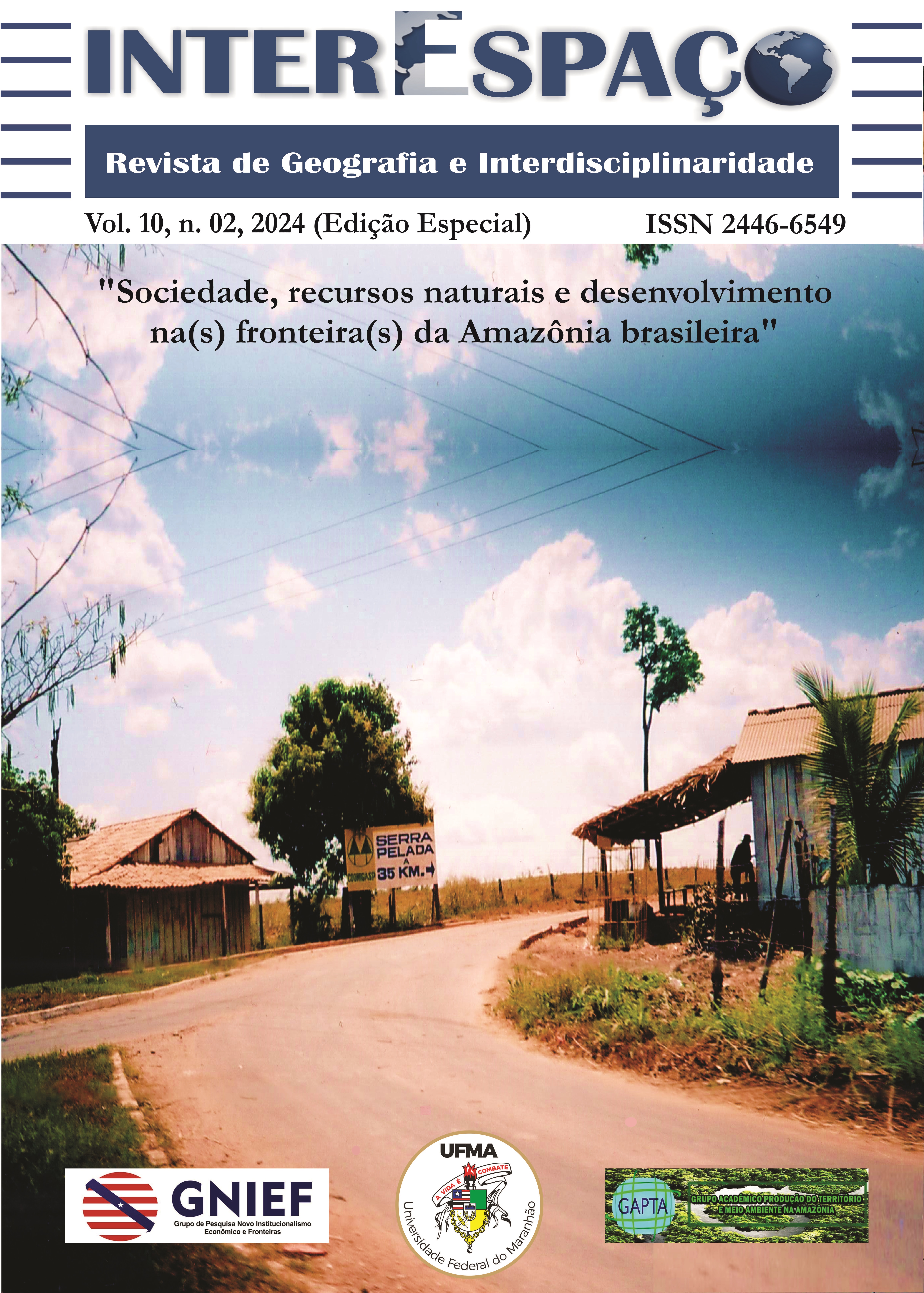Marks of an inadequate “progress”: deforestation and the “green scar”on the intensification frontier of Novo Repartimento, State of Pará, between 2000 and 2023
DOI:
https://doi.org/10.18764/2446-6549.e22936Keywords:
Frontier(s), "Progress", Deforestation, Novo Repartimento, Intensification FrontierAbstract
Since the 1960s, the Legal Amazon has undergone an intense and complex process of territorial occupation in its borders. Driven by strategies, programs, and regional development projects, this process was marked by the steady growth of economic relations with other regions of Brazil and by a more significant international insertion in the pursuit of economic “progress”. In 2006, the highest rates of deforestation in the Legal Amazon were observed in the State of Pará, particularly in the municipality of Novo Repartimento. This article aims to understand, through geoprocessing tools, how the dynamics of deforestation in Novo Repartimento, in southeastern Pará, influenced the formation and expansion of a new frontier between 2000 and 2023: the “intensification frontier”. The research revealed that the intensification frontier is a key category in this process, expanded by public policies, strategic planning, and inadequate investments by the Brazilian State, resulting in a series of “scars” in the forest. As a consequence of this inadequate “progress”, significant changes occurred in the region’s population, economy, and environment, pushing Novo Repartimento into a state of severe environmental regression — a situation that persists to this day, even with the use of environmental management mechanisms.
Downloads
Downloads
Published
How to Cite
Issue
Section
License

This work is licensed under a Creative Commons Attribution-NonCommercial-NoDerivatives 4.0 International License.
Direitos autorais InterEspaço: Revista de Geografia e Interdisciplinaridade
Este obra está licenciado com uma Licença Creative Commons Atribuição-NãoComercial-SemDerivações 4.0 Internacional.
Os conteúdos publicados são de inteira e exclusiva responsabilidade de seus autores, ainda que reservado aos editores o direito de proceder a ajustes textuais e de adequação às normas da publicação.







